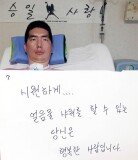Stopgap measures are not enough to stop the medical crisis
Stopgap measures are not enough to stop the medical crisis
Posted September. 25, 2024 07:41,
Updated September. 25, 2024 07:41
Some medical schools, including Catholic University Medical School of Korea, have reportedly told medical students who are boycotting classes in protest of the government’s push to increase the medical school enrollment quota that they can advance to the next grade by “simply taking the exam without taking classes,” which has sparked controversy. Medical schools are generally very stringent with academic management; students who fail even one subject are required to retake the entire academic year. When the Ministry of Education, which has the authority to provide educational grants, pressured schools by saying that “they could not allow all the students to repeat the year,” they came up with a last-minute measure of allowing temporary special treatment.
In July, the Ministry of Education announced that they would not allow medical students to repeat a year to 40 medical schools nationwide. When it became clear that repeating a year would be the evident result of medical school students’ refusal to attend classes in the first semester, they postponed the decision to repeat the year to the end of the school year. They released the ‘Medical School Academic Flexibility Management Guidelines,’ which included measures to exclude repeat years even for F-grade students. This measure was taken considering that the annual number of doctors produced, which is 3,000, will be suspended from next year, as well as up to 7,500 students, which includes an increased first-year student quota over six years taking classes altogether. A sensible government should devise ‘Plan B’ prepared in advance or readjust the policy considering the circumstances. Instead, the government dogmatically insisted on increasing the medical school student quota; they came up with the absurd measure of allowing ‘grade advancement without attending class.’
Even if the Ministry relaxes medical school regulations, the situation of medical students’ mass repeats appears inevitable. Despite the government’s ongoing relief measures, the second-semester enrollment rate at medical schools nationwide remains at 3.4%, and academic chaos continues. The situation is expected to worsen next year. There is no guarantee that students who have left school in protest of the increase in medical school enrollment will return, with freshmen likely to follow suit. The number of students opting to retake the college entrance exam by taking a leave of absence to sign up for medical schools in the Seoul metropolitan area, which have relatively better educational conditions, will also increase. What will happen to medical school education if first-year students continue to repeat a year next year?
Not only is the current medical crisis a problem, but the aftereffects of the disruption of medical school education will have an irreversible negative impact on the medical system in the long term. Increasing the medical school student quota was intended to improve the quality of medical care. Still, in the process, the purpose has been set aside, purely focusing on the goal of increasing the medical school quota only. Such circumstances have led to poor medical service quality and undermining the training system. How long will this absurd practice of placing the cart before the horse persist? Are they simply hoping the situation will resolve on its own when the college entrance process begins?







